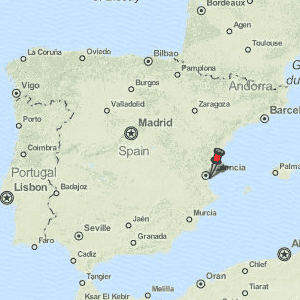The best way to become fluent is to get out there and practice speaking to real Italians, but if that's not possible – or you just want to gain a bit of confidence before embarrassing yourself in front of the beautiful barista – then smartphone apps are the way to go.
The following apps are tailored to different needs so whether you just need to learn enough to order at your favourite trattoria or want to be able to tackle the works of Dante in the original language, you can brush up on the verbs, vocabulary and/or phrases you need. They're cheaper than taking a course or investing in chunky textbooks, and many use algorithms which adapt to your skills so that you'll learn faster.
The Local has rounded up the five best apps for learning Italian which are available for free on the Google Play store. They all have an offline mode, meaning you can hone your skills whenever you have a few spare minutes without eating into your data allowance.
Let us know if you've tried them out yourself.

Learn 10,000 words and phrases relating to useful topics from beginner to advanced level – that's more words than any other free app offers. There is a flashcard dictionary and audio pronunciation, plus a listening-only mode so you can learn while exercising or doing housework. It even has an option to switch on background relaxation music which is thought to increase your capacity for learning.
User Breanna Davis wrote in a Google Play store review: “Easily the best language app I've ever used! So easy to use, and makes learning fun and easy.”
2) Learn Italian – 50 Languages

50 languages works well if you want to learn the basics to get by on holiday or in everyday situations. It’s similar to a traditional textbook approach, combining audio and text exercises which teach you vocabulary and grammar organized into different subject areas. The free version has 30 lessons available, and then you pay to upgrade to 100. You can download extra exercises and audio files from the website, www.50languages.com
“Excellent app. Great vocabulary and easy to use. The best language app out there for the price,” commented Jim Kerr.
3) Learn Italian – Speak Italian

The app's creators, busuu, promise that learning Italian is “easier than you think”, and its 50 million users worldwide seem to agree, judging by its positive reviews. It's aimed at those who want to develop a comprehensive understanding of Italian, with vocabulary and grammar units, audio dialogues and language games, but the most exciting feature is the option of sending send exercises to a native speaker for feedback.
Carine T praised the app in her review, saying: “Great app. Learning Italian is just great! I love the written exercises corrected by native speakers.”

Already learned the basics but want to improve your grammar? This app allows you to conjugate over 10,000 verbs in all the tenses – perfect when you’re dealing with the tricky irregulars or one of the less common tenses, so you’ll amaze natives with your mistake-free Italian.
“Excellent application for those who study Italian and have troubles with verbs,” said user Zury Sof.
5) Duolingo
One of the most comprehensive and best-rated language-learning apps out there, Duolingo's makers claim 34 hours on the app “are equivalent to a semester of university-level education”. Grammar, vocabulary and phrases are organized into different topics which you work through in small, bite-sized lessons that feel like a game. It evolves as you go so that you'll be tested on the topics you struggle with most, and you get rewards for regular practice, making it addictive as well as educational. The only downside is that you can't pick and choose specific topics to learn, but have to unlock them in the correct order.
“Amazing! Duolingo is really easy and fun and really does a great job of teaching the language you have chosen!! Its cool that you get 'gems' when you finish a topic and can spend it in the store to get icons or clothes for the Duolingo bird!” writes user Hannah Bottomley.
A version of this article was first published in April 2016.








 Please whitelist us to continue reading.
Please whitelist us to continue reading.
Member comments